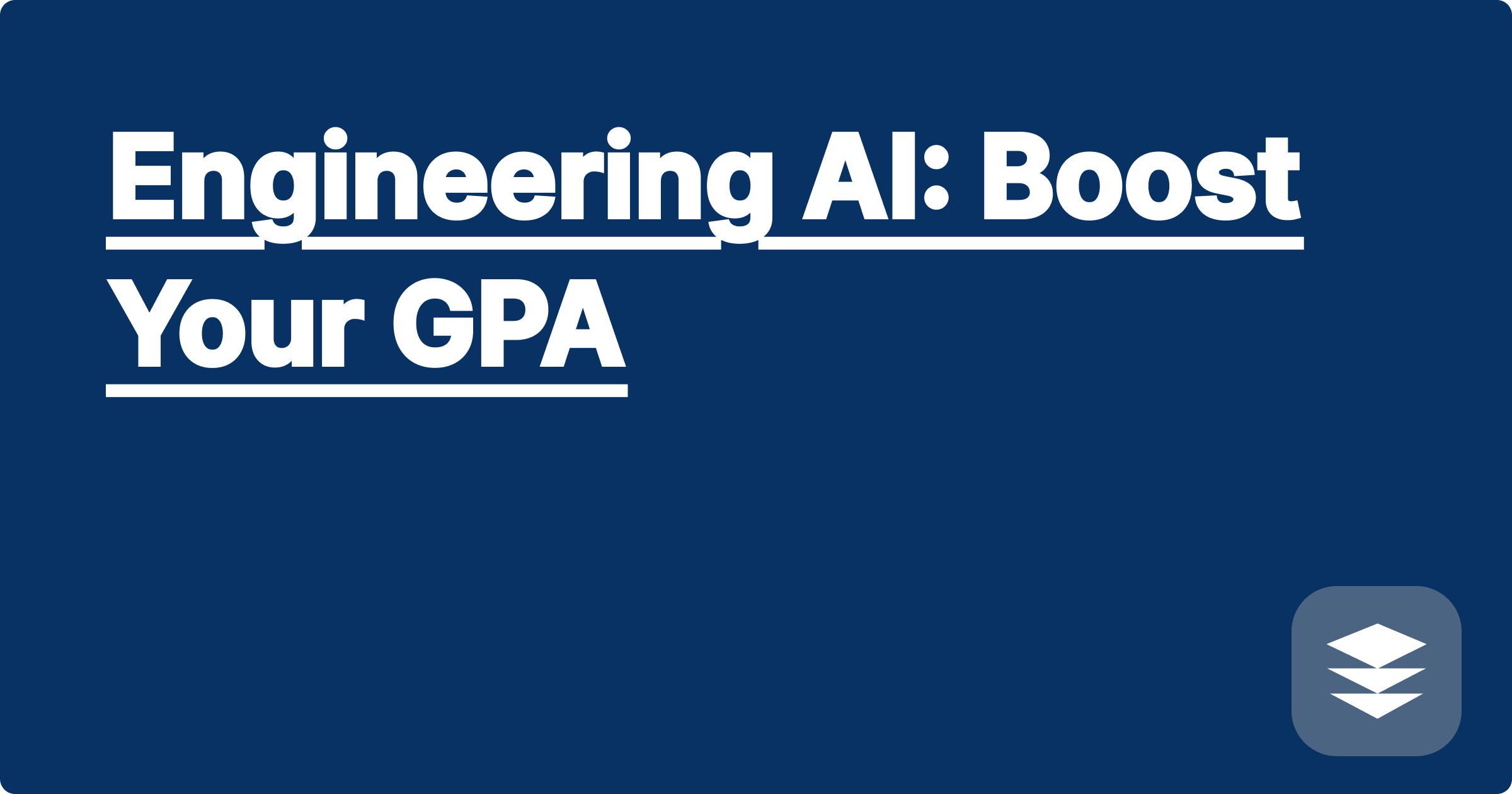
The demanding world of STEM education often presents students and researchers with complex challenges, from intricate problem sets to extensive research projects. These challenges can feel overwhelming, particularly given the ever-expanding body of knowledge and the pressure to maintain a high GPA. Fortunately, the rapid advancements in artificial intelligence offer powerful new tools that can significantly alleviate these pressures and empower STEM learners to excel. AI can act as a powerful assistant, helping students grasp difficult concepts, streamline research processes, and ultimately improve academic performance.
This is particularly relevant for STEM students and researchers because the nature of their work often involves complex calculations, data analysis, and literature reviews. AI tools can automate many of these tedious tasks, freeing up valuable time and mental energy for deeper learning and critical thinking. By understanding how to effectively leverage these tools, students can gain a significant advantage in their studies, improve their understanding of complex topics, and ultimately boost their GPA. This blog post will delve into the specific challenges faced by STEM students and researchers and explore how AI can be utilized as a powerful tool for academic success.
STEM fields often involve grappling with complex mathematical equations, intricate physical simulations, and extensive data analysis. These tasks can be time-consuming and require a deep understanding of underlying principles. For instance, a mechanical engineering student might struggle with designing a complex gear system, requiring them to solve numerous equations and consider various design parameters. Similarly, a biology student might spend countless hours analyzing experimental data, trying to identify patterns and draw meaningful conclusions. The sheer volume of information and the complexity of the concepts can often lead to frustration and hinder academic progress. Furthermore, staying up-to-date with the latest research and advancements in their chosen field can be a daunting task, adding another layer of complexity to the academic journey. This constant struggle to keep up and master difficult material can negatively impact a student's GPA and overall academic experience.
AI tools like ChatGPT, Claude, and Wolfram Alpha offer powerful solutions to these challenges. ChatGPT and Claude can be used for understanding complex concepts by explaining them in simpler terms, generating practice problems, and even providing feedback on written assignments. Wolfram Alpha excels at performing complex calculations, solving equations, and providing step-by-step solutions. These tools can significantly reduce the time spent on tedious tasks, allowing students to focus on deeper learning and critical analysis. By using these AI assistants, students can gain a more thorough understanding of the subject matter and improve their problem-solving skills. Moreover, these tools can assist with literature reviews by summarizing key findings from research papers and identifying relevant articles, further streamlining the research process.
Let's consider the example of a mechanical engineering student designing a gear system. First, the student can use ChatGPT or Claude to understand the fundamental principles of gear ratios and torque transmission. They can ask specific questions about different gear types and their applications, receiving clear and concise explanations. Next, they can use Wolfram Alpha to calculate the required gear ratios and dimensions based on the design specifications. They can input the desired output speed and torque, and Wolfram Alpha will provide the necessary calculations and even generate visualizations of the gear system. Finally, they can use ChatGPT or Claude to refine their design by asking for feedback on their calculations and design choices. This iterative process allows the student to leverage the strengths of each AI tool, leading to a more efficient and effective design process.
Consider the task of deriving the equation of motion for a simple pendulum. A student can input the problem into Wolfram Alpha, which will not only provide the final equation, θ''(t) + (g/L)sin(θ(t)) = 0, where θ(t) is the angular displacement, g is the acceleration due to gravity, and L is the length of the pendulum, but also show the step-by-step derivation using Newton's second law and the small-angle approximation. Another example is using ChatGPT to understand the concept of gene editing using CRISPR technology. The student can ask questions like "Explain how CRISPR works" or "What are the ethical implications of gene editing?" and receive comprehensive answers in easy-to-understand language. These examples demonstrate how AI tools can be used across different STEM disciplines to enhance learning and problem-solving.
To maximize the benefits of AI in STEM education, it is important to use these tools strategically. Don't rely solely on AI for answers; instead, use it as a supplement to your learning process. Focus on understanding the underlying concepts and principles, and use AI to clarify any confusion or to verify your own calculations. It is also important to develop critical thinking skills and evaluate the information provided by AI tools. Always double-check the results and ensure they are consistent with your understanding of the subject matter. Furthermore, actively engage in discussions with professors and peers, and use AI to enhance your understanding of the topics discussed in class. By combining AI tools with traditional learning methods, you can create a powerful learning environment that fosters deep understanding and academic success.
Concluding, incorporating AI tools into your STEM studies can be a game-changer. By understanding how to effectively leverage these powerful resources, you can overcome complex challenges, improve your understanding of complex concepts, and ultimately enhance your academic performance. Start exploring these tools today and discover how they can unlock your full academic potential. Embrace the power of AI and embark on a journey of enhanced learning and academic success. Don't hesitate to experiment with different AI tools and find the ones that best suit your learning style and needs. The future of STEM learning is here, and it's powered by AI.
AI Homework Help: STEM Made Easy
Ace STEM Exams: AI Study Guide
AI for Lab Reports: Data Analysis
AI: Your Physics Homework Solver
Engineering AI: Boost Your GPA